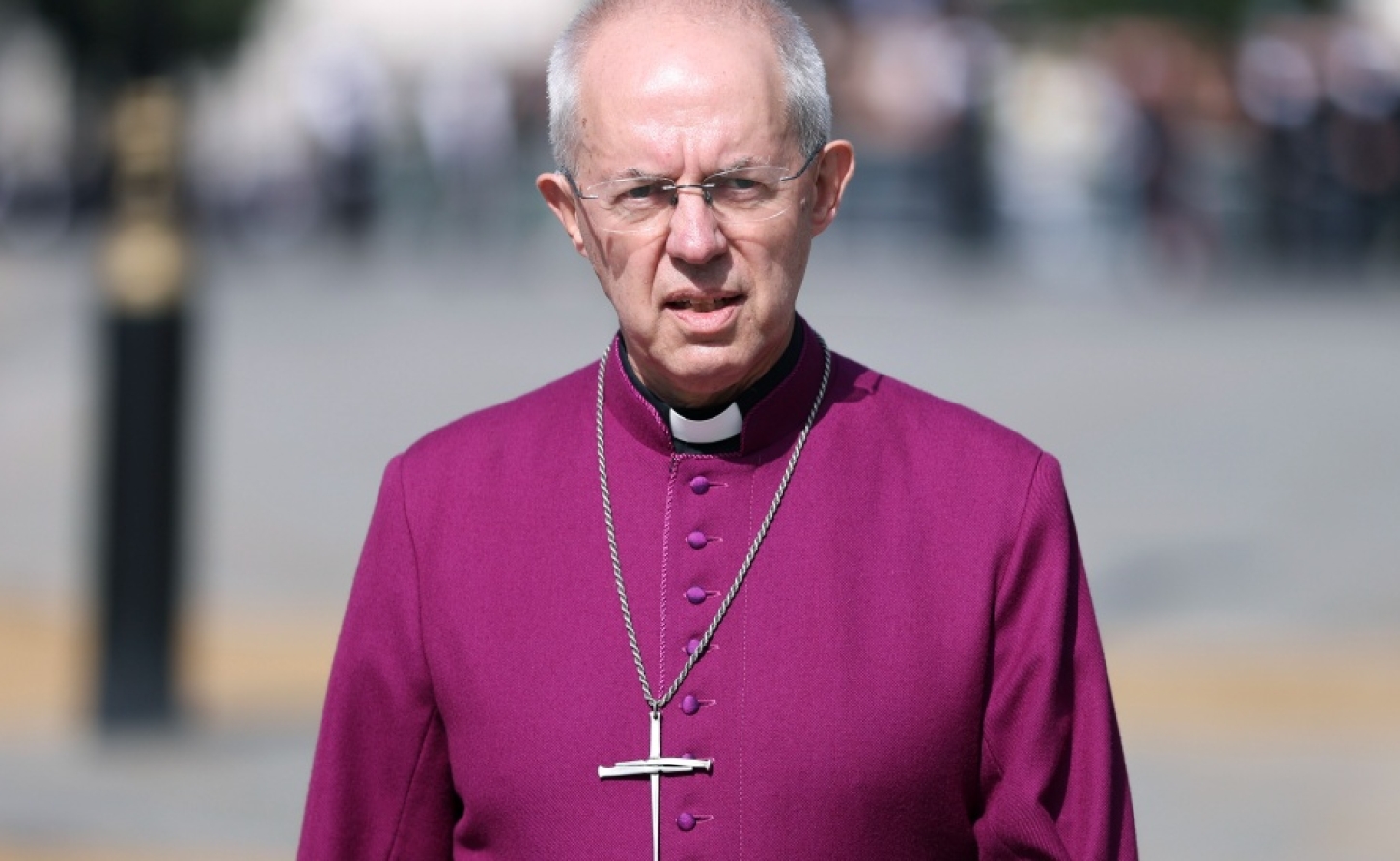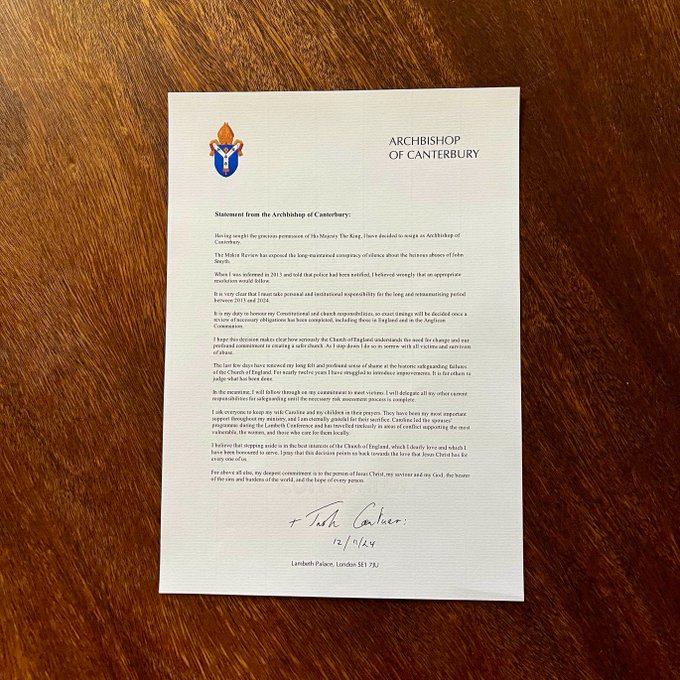BRITAIN | Archbishop of Canterbury Resigns Amid Scandal and Criticism Over Mishandling of Abuse Allegations

LONDON, England, November 12, 2023 - In a move that has sent ripples through the Anglican community, Archbishop of Canterbury Justin Welby has announced his resignation, bowing to mounting pressure over his handling of a high-profile abuse scandal. The departure, formally approved by King Charles on Tuesday, follows an intense public reckoning over the Church of England’s response to abuse allegations involving former barrister John Smyth.
The resignation follows the release of the independent Makin Review, a report that sheds harsh light on the church’s handling of Smyth's abuse and condemns Welby’s decision not to alert authorities when he was informed in 2013. Smyth, who died in 2018, is believed to have abused approximately 130 boys, targeting victims in both the United Kingdom and later in Zimbabwe and South Africa. The Makin Review suggests that swift action by church leadership could have brought Smyth to justice years ago.
The scandal has put the Church of England at the center of a fierce debate on institutional accountability, with many voices within the church and beyond calling for a transformation in its handling of abuse cases. Calls for Welby’s resignation intensified in the days after the report’s release, with a petition led by General Synod members amassing over 13,000 signatures. The outcry only grew after Prime Minister Keir Starmer declined to back Welby publicly, intensifying the perception of his untenable position as the church's spiritual leader.
In a statement issued on social media, Welby expressed remorse, saying, “The Makin review has exposed the long-maintained conspiracy of silence about the heinous abuses of John Smyth.” Welby acknowledged the years of pain endured by survivors, acknowledging, “It is very clear that I must take personal and institutional responsibility for the long and retraumatising period between 2013 and 2024.” He added that while the exact timing of his departure remains uncertain, he hopes his resignation underscores the church’s commitment to reform.
In his statement, Welby recognized the shame surrounding the church's past failures and his own struggle to implement changes, saying, “For nearly 12 years I have struggled to introduce improvements. It is for others to judge what has been done.” He reaffirmed his intention to meet with victims, but emphasized that he would relinquish safeguarding responsibilities until the church completes a new risk assessment.
 Welby’s resignation marks a stark contrast to an earlier statement from Lambeth Palace that downplayed the possibility of his departure, citing his “profound apology” for his omissions. But the clamor for reform continued, with calls not only for Welby’s resignation but also for broader systemic change.
Welby’s resignation marks a stark contrast to an earlier statement from Lambeth Palace that downplayed the possibility of his departure, citing his “profound apology” for his omissions. But the clamor for reform continued, with calls not only for Welby’s resignation but also for broader systemic change.
Figures across the Anglican hierarchy voiced support for Welby’s decision, viewing it as a crucial step toward accountability. Archbishop of York Stephen Cottrell described it as “the right and honorable thing,” while Bishop of London Dame Sarah Mullally welcomed the “urgent impetus” the resignation brings to church safeguarding reforms.
However, voices of skepticism remain. Andrew Graystone, author of Bleeding for Jesus, criticized the broader culture within the church, which he argued has long been marked by privilege and avoidance. “At least 11 bishops knew about John Smyth’s abuse but failed to stop him,” Graystone said. “This is not about the incompetence of one man. It is a deep-seated cultural issue about privilege in the church.” Lawyer Alan Collins, representing some of Smyth’s victims, echoed this, noting, “The spotlight must be on how the Church of England failed its victims so dreadfully for over 40 years.”
Smyth’s abuse, which dates back to the 1970s and 80s, involved brutal physical, psychological, and spiritual harm against private school boys attending evangelical Christian camps. When allegations surfaced, rather than face justice in the UK, Smyth was allowed to relocate abroad, where his abusive behavior continued unchecked. He was under investigation in the UK at the time of his death, but as the Makin Review grimly notes, Smyth was “never brought to justice.”
Welby’s ties to the camps where Smyth perpetrated his abuse have placed the Archbishop under particular scrutiny, as he volunteered at the events during that period. Though he has denied knowledge of the abuse, the report questions the extent of his awareness, stating that it is “most probable” Welby was aware of concerns surrounding Smyth’s behavior.
Welby’s departure marks a sobering moment in the history of the Church of England, where calls for reform are now louder than ever. The challenge that remains will be whether the institution, beyond one man, can address the cultural and systemic changes that survivors, clergy, and the public demand.
-30-
